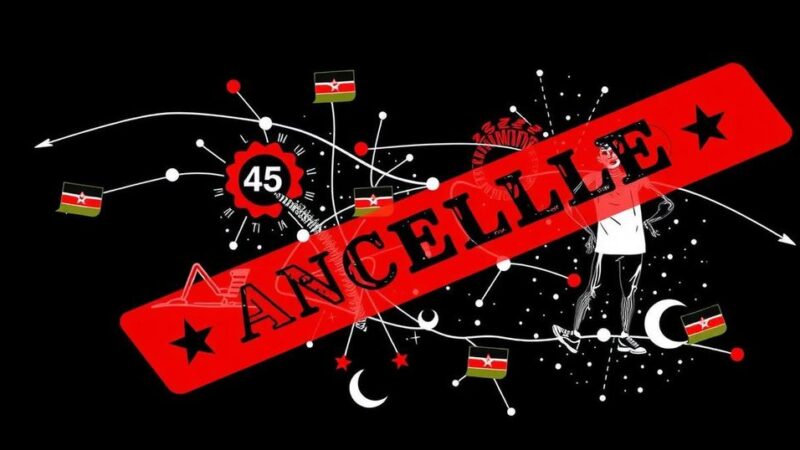A report indicates that Uganda’s enactment of the Anti-Homosexuality Act has led to economic losses ranging from $470 million to $1.6 billion and could pose combined losses of up to $8.3 billion over five years. The legislation has repercussions across various economic sectors, influencing tourism, public health, and foreign investments.
A recent report by Open for Business reveals that Uganda’s controversial Anti-Homosexuality Act has led to an estimated financial loss of between $470 million and $1.6 billion since its enactment. This amount represents approximately 0.9% to 3.2% of Uganda’s gross domestic product (GDP). Furthermore, if the law remains intact, projected financial losses could escalate to between $2.3 billion and $8.3 billion over the next five years. The report outlines eight significant sectors where the law has negatively impacted Uganda’s economy: international aid, foreign direct investment, tourism and national reputation, public health, national productivity, law enforcement and legal costs, human capital and talent emigration, and trade relations. Notably, projected losses in tourism could range from $9 million to $99 million due to reputational damage among Western nations, alongside estimated losses of $23 million to $58 million attributed to mental health challenges, absenteeism, and reduced productivity among LGBTQ workers. Additionally, the report anticipates a talent exodus with losses between $3 million and $24 million in productivity as 5,000 to 15,000 LGBTQ individuals may leave Uganda to escape persecution. The imposition of the Act reportedly exacerbates untreated HIV issues, potentially costing Uganda between $70 million and $312 million in future healthcare burden. The Anti-Homosexuality Act, signed into law by President Yoweri Museveni in May 2023, prescribes severe punishments for same-sex relations, including life imprisonment and the death penalty for so-called “aggravated homosexuality.” In April, Uganda’s Constitutional Court upheld most provisions of this contentious law while invalidating certain aspects deemed unconstitutional, such as penalties for individuals who do not report LGBTQ activity.
The Anti-Homosexuality Act in Uganda has sparked widespread condemnation both domestically and internationally since it was enacted. With severe penalties, including life imprisonment and the death penalty for certain offenses, the law has raised significant concerns regarding human rights violations and discrimination against the LGBTQ community in Uganda. Various international stakeholders, including global corporations committed to inclusivity, have expressed alarm over the potential economic ramifications resulting from this legislation. As countries worldwide increasingly prioritize human rights in their international relations, Uganda’s restrictive laws have led to a decrease in foreign investment, international aid, and a tarnished reputation. This has posed challenges not only for the LGBTQ community but also for the broader economic landscape of Uganda.
In conclusion, the Anti-Homosexuality Act has severely impacted Uganda’s economic prospects and international standing, resulting in substantial financial losses estimated between $470 million and $1.6 billion in the past year alone. The law poses dire consequences for tourism, foreign investment, and public health. As global awareness and opposition to such discriminatory practices grow, the need for repeal becomes increasingly urgent to safeguard both human rights and the economic vitality of the nation.
Original Source: www.metroweekly.com






